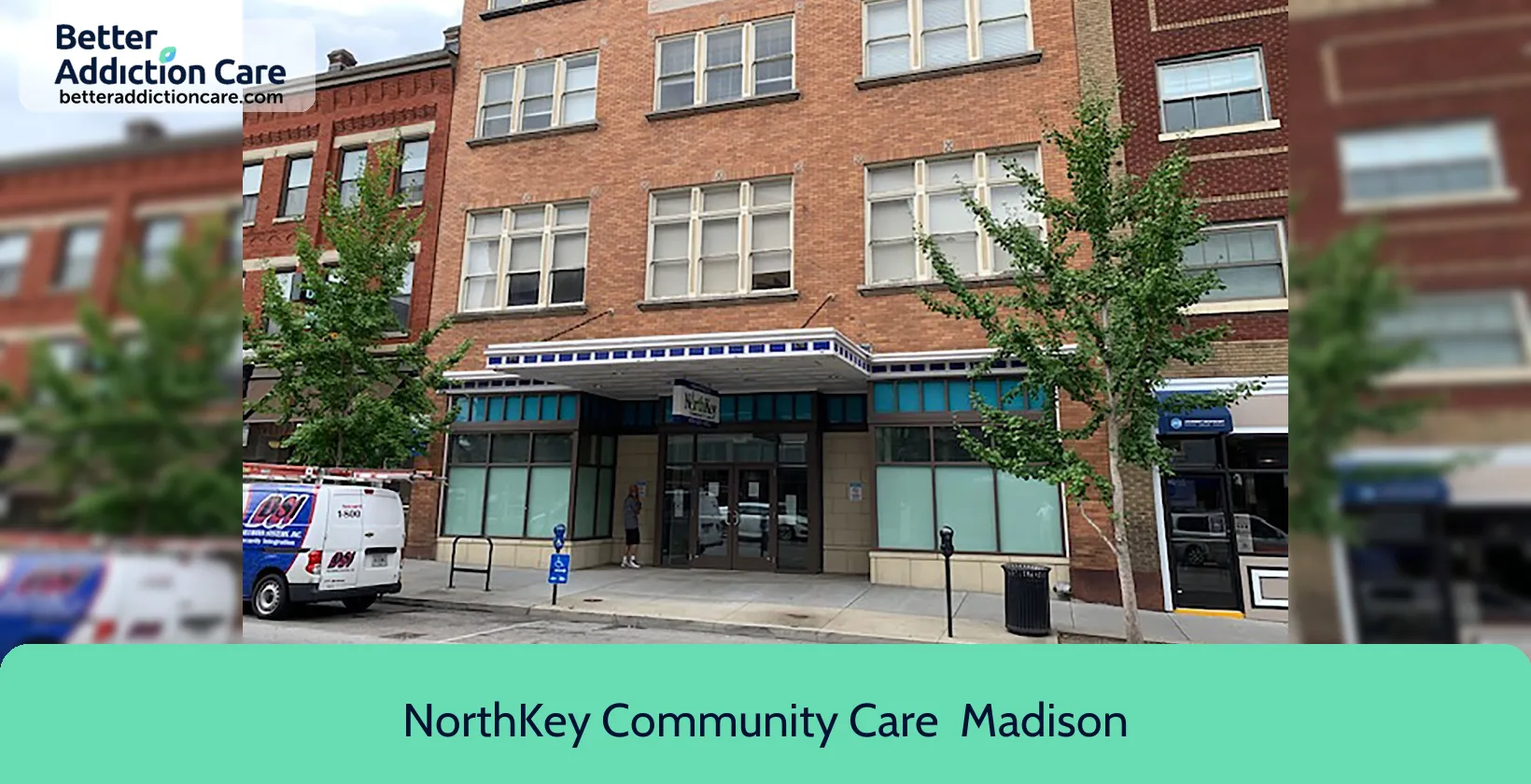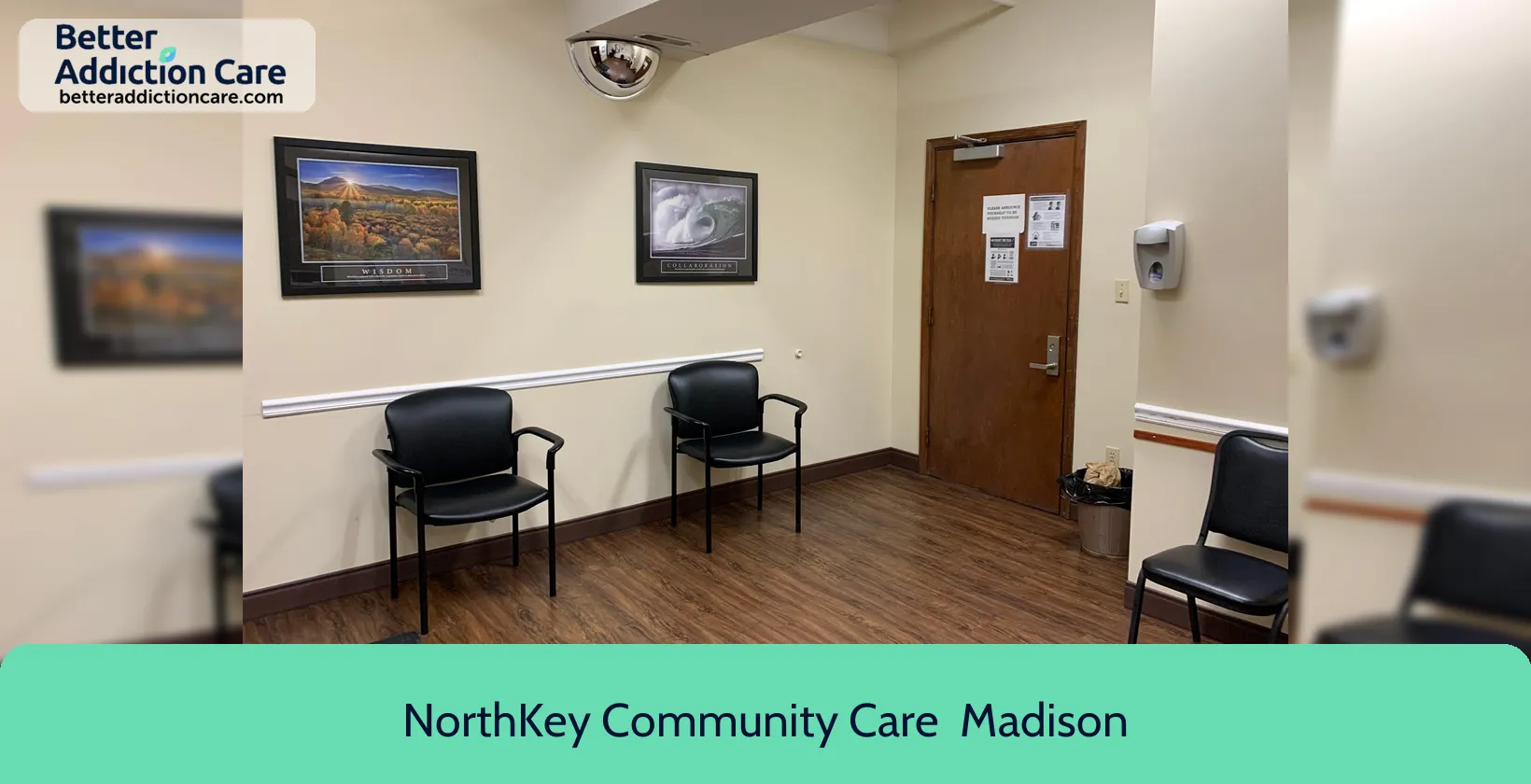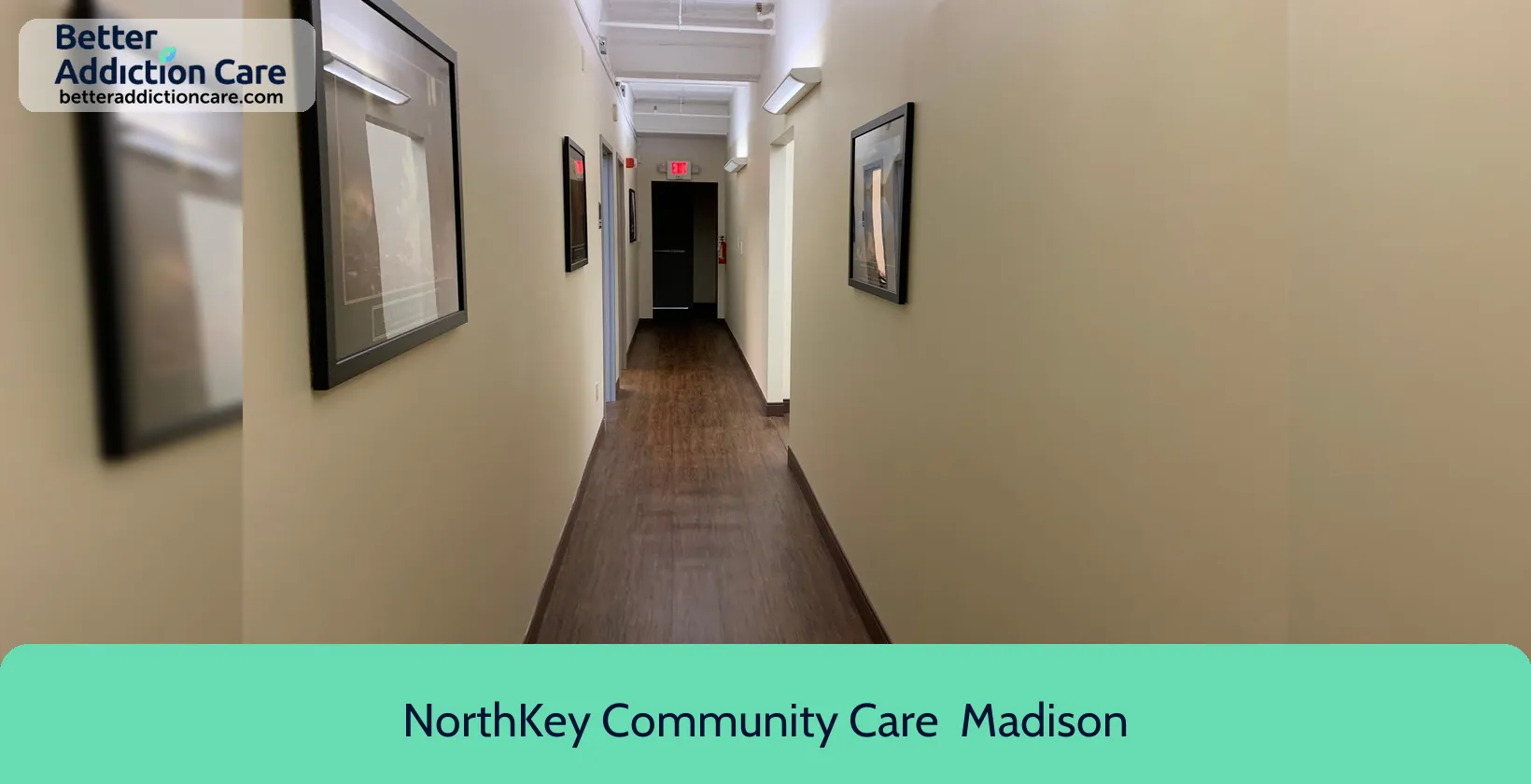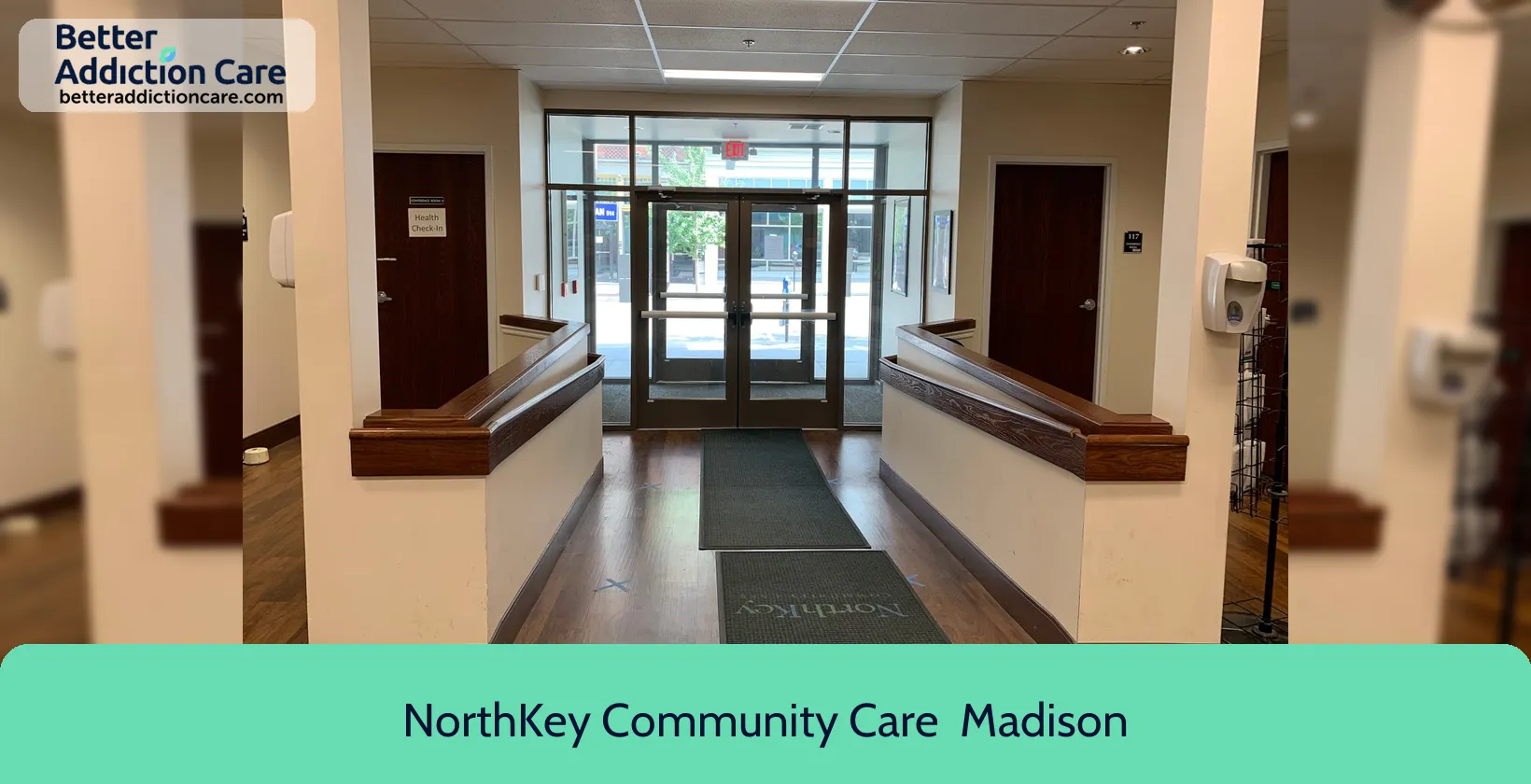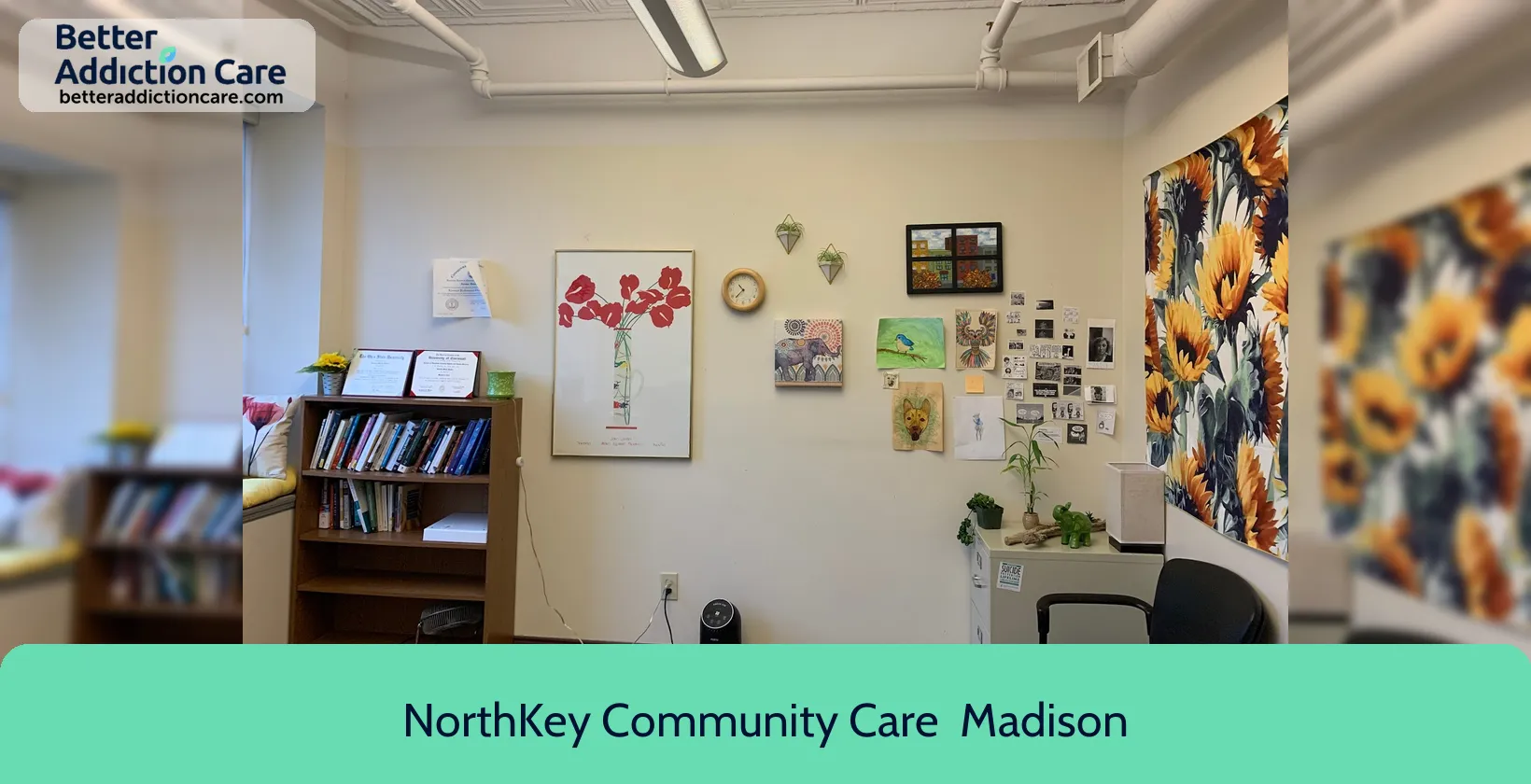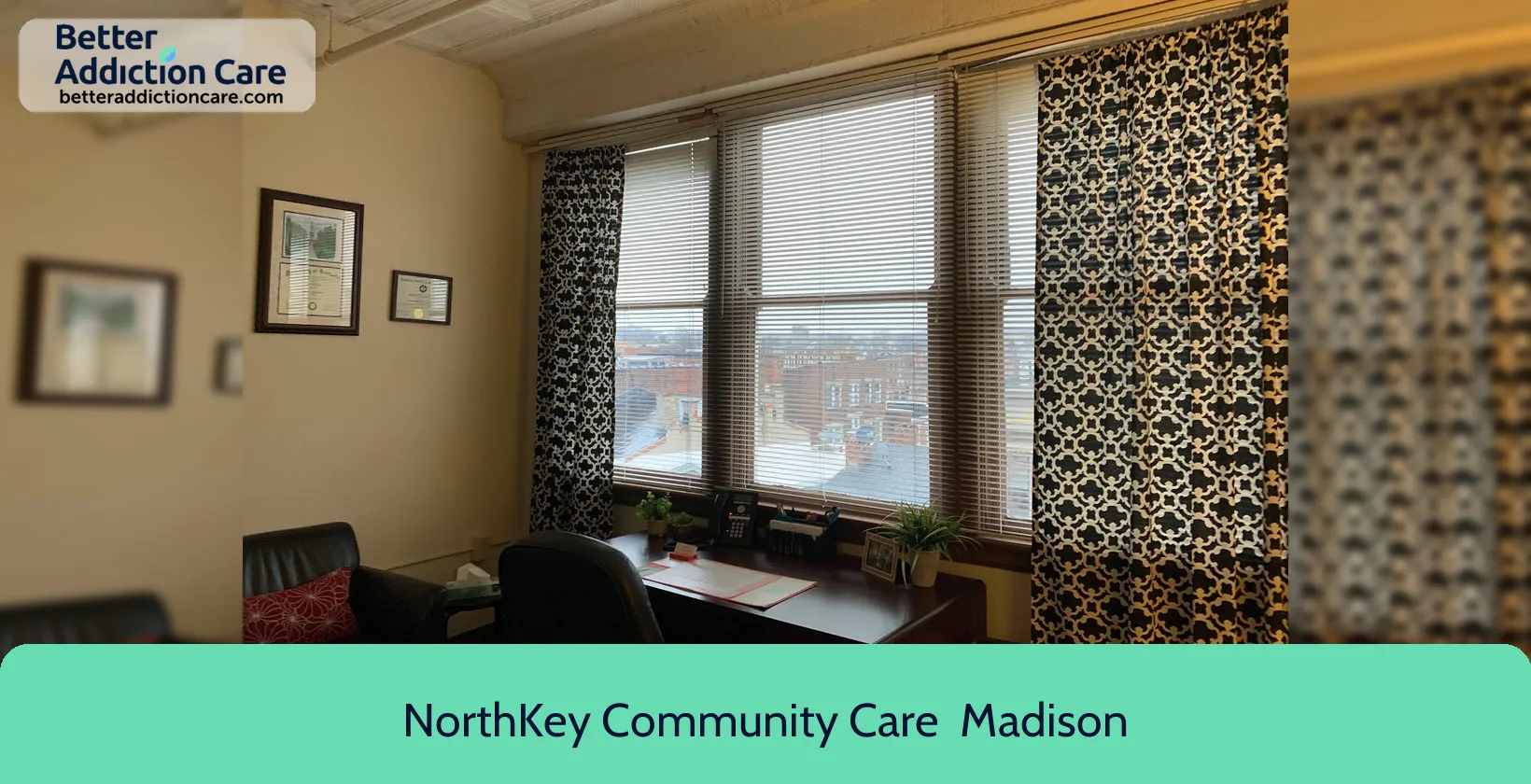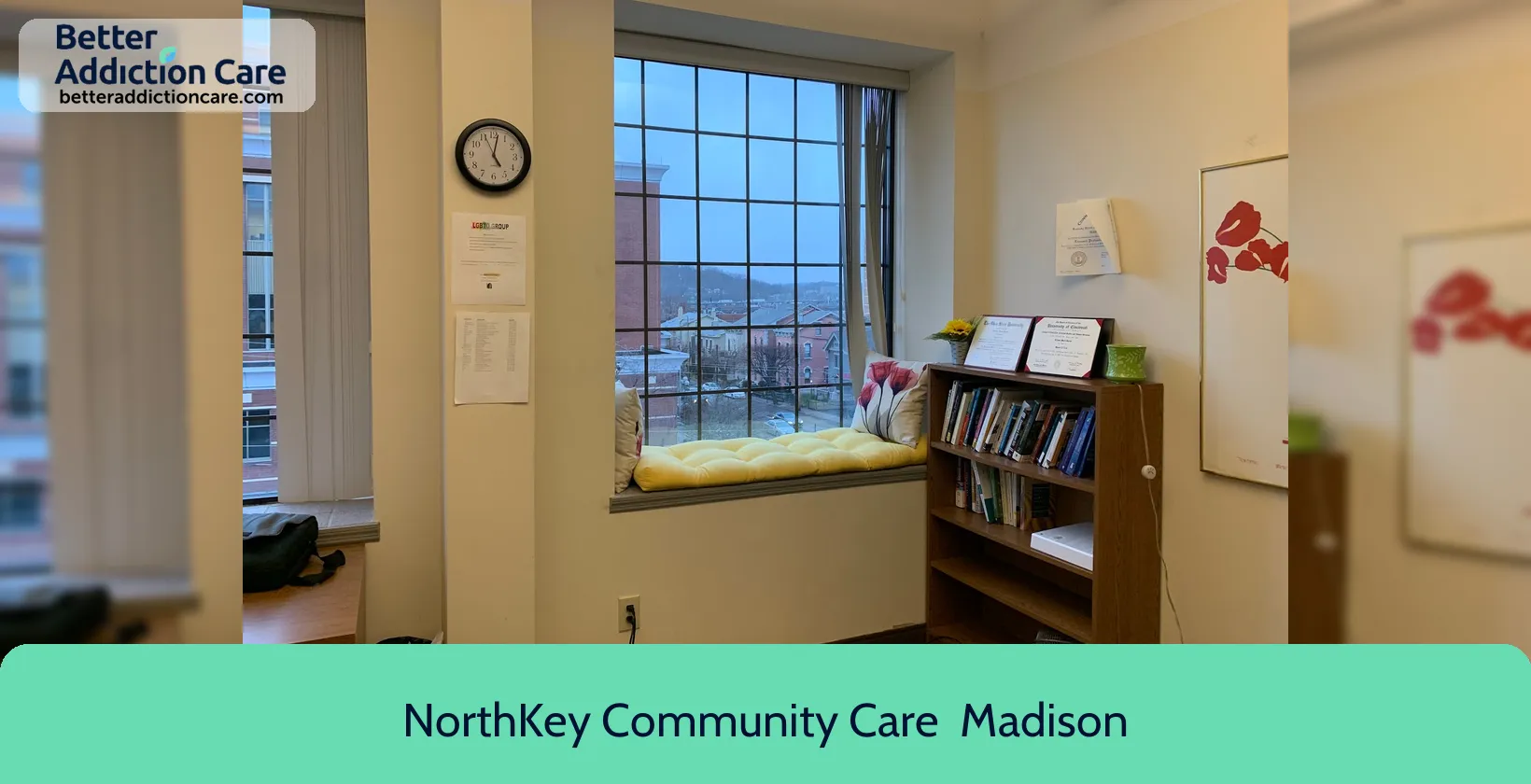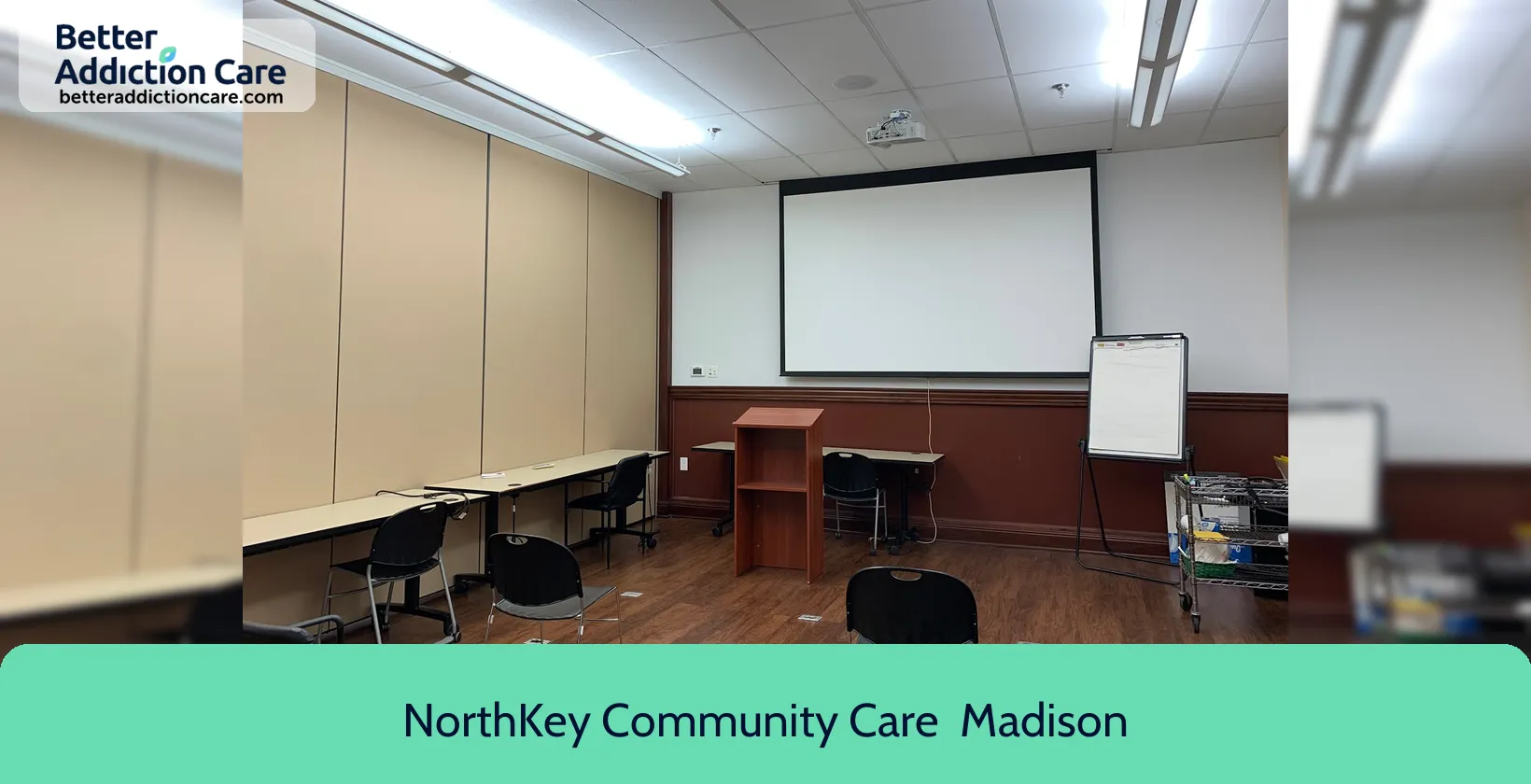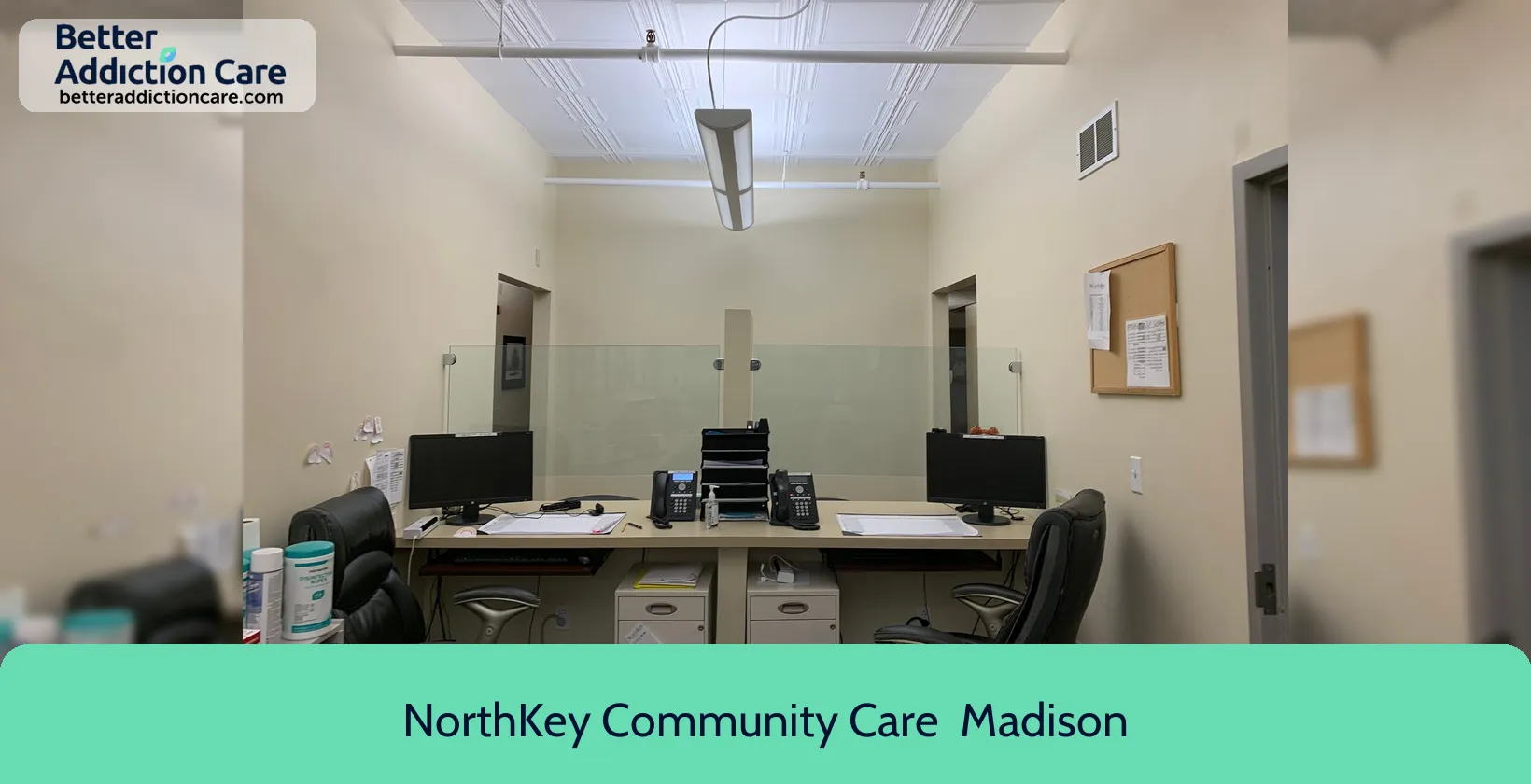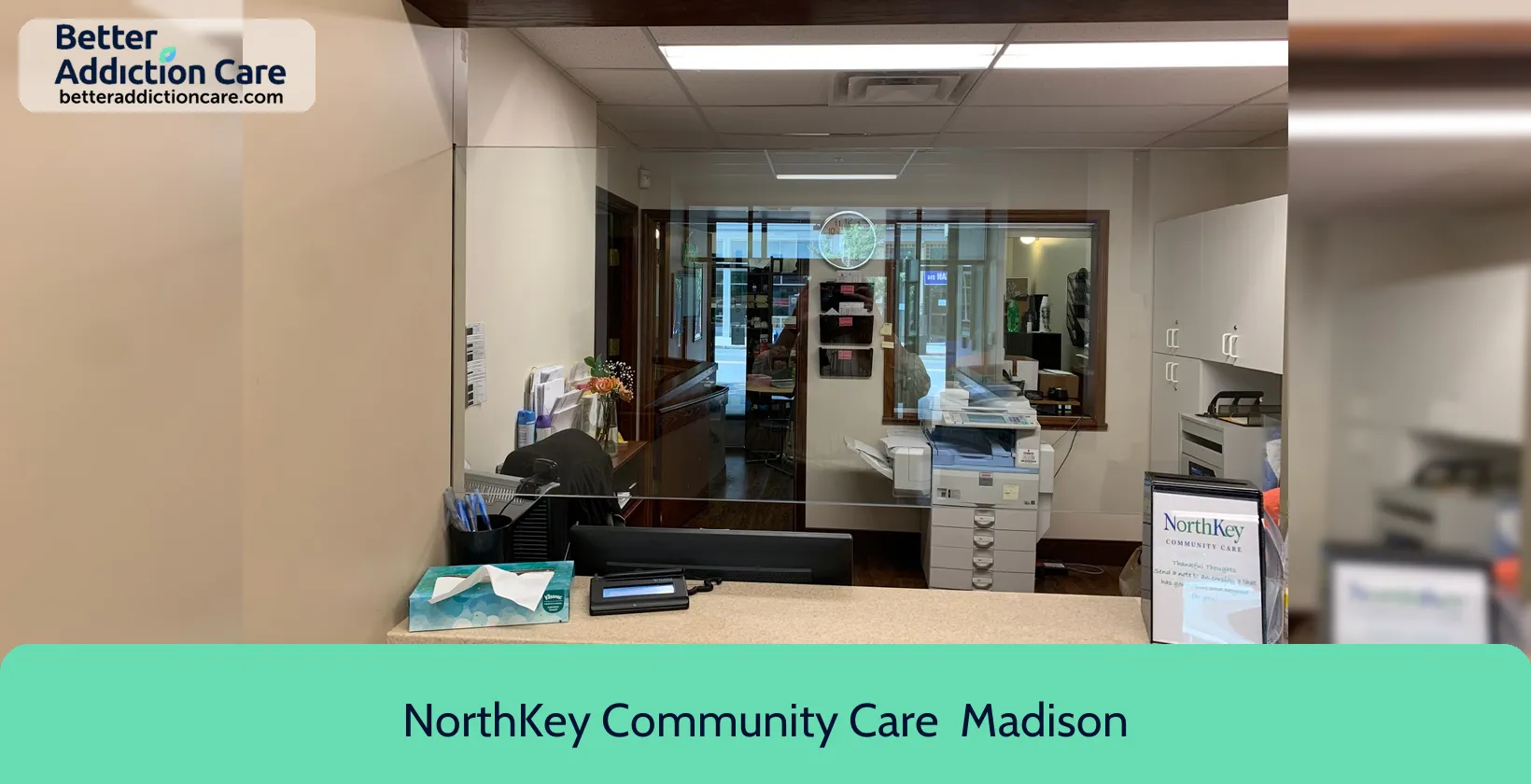NorthKey Community Care - Madison Office
Overview
At its location in Covington, Kentucky, NorthKey Community Care offers a wide range of mental health and drug abuse services for people of all ages, including kids and adults. The facility's main goals are to help people with intellectual disabilities, mental health problems, and drug abuse problems. NorthKey is committed to being open to everyone, so its services are not labeled as gender- or faith-based. This way, everyone who needs help can get it.
The facility has many different programs, such as outpatient services, intense outpatient programs, treatment for drug abuse, psychiatric services, coordination of behavioral health care, supportive housing, and treatment with medication for opioid use disorder. Cognitive Behavioral Therapy (CBT), Assertive Community Treatment (ACT), activity therapy, anger management, group support, mental health consultations for young children, and services to stop people from using drugs are all types of treatment. Notably, NorthKey Community Care has a movable crisis team and crisis services that are available 24 hours a day, 7 days a week. This means that people who need help can get it right away. NorthKey meets high standards for care and service delivery and is accredited by The Joint Commission. They have special programs for kids and teens.
NorthKey Community Care - Madison Office at a Glance
Payment Options
- Cash or self-payment
- Medicaid
- Medicare
- State-financed health insurance plan other than Medicaid
- Private health insurance
Assessments
- Screening for tobacco use
- Comprehensive mental health assessment
- Comprehensive substance use assessment
- Screening for mental disorders
- Screening for substance use
Age Groups
- Children/adolescents
- Young adults
- Adults
- Seniors
Ancillary Services
- Assertive community treatment
- Case management service
- Court-ordered outpatient treatment
- Integrated primary care services
- Suicide prevention services
Highlights About NorthKey Community Care - Madison Office
7.60/10
With an overall rating of 7.60/10, this facility has following balanced range of services. Alcohol Rehabilitation: 8.00/10, Drug Rehab and Detox: 8.46/10, Insurance and Payments: 6.00/10, Treatment Options: 7.94/10.-
Drug Rehab and Detox 8.46
-
Alcohol Rehabilitation 8.00
-
Treatment Options 7.94
-
Insurance and Payments 6.00
Accreditations
State mental health department:
State mental health department accreditation refers to the process of evaluating and certifying the quality and standards of a state's mental health department, ensuring that it provides high-quality services and meets specific criteria for mental health care. The accreditation process is performed by a third-party organization and helps to improve the overall care and treatment of individuals with mental health conditions.
Drug Enforcement Agency (DEA):
DEA accreditation refers to the process by which a law enforcement agency is recognized by the Drug Enforcement Agency (DEA) as having met specific training, operational, and resource requirements necessary to participate in DEA-led drug enforcement efforts. This accreditation allows the agency to perform DEA-related tasks such as conducting investigations, executing federal search warrants, and participating in joint task forces.
The Joint Commission:

The Joint Commission's addiction and behavioral health accreditation signifies a facility's commitment to high-quality care. It involves rigorous evaluations and assessments of clinical practices, ensuring effective, evidence-based treatment. Accreditation showcases a dedication to continuous improvement and patient safety, instilling trust among patients, families, and healthcare professionals. It's a mark of excellence in addiction and behavioral health care.
Treatment At NorthKey Community Care - Madison Office
Treatment Conditions
- Alcoholism
- Mental health treatment
- Substance use treatment
- Co-occurring Disorders
Care Levels
- Outpatient
- Outpatient methadone/buprenorphine or naltrexone treatment
- Intensive outpatient treatment
- Regular outpatient treatment
- Aftercare
Treatment Modalities
- Individual psychotherapy
- Couples/family therapy
- Cognitive behavioral therapy
- Integrated Mental and Substance Use Disorder treatment
- Telemedicine/telehealth therapy
Ancillary Services
Languages
- Sign language services for the deaf and hard of hearing
- English
Additional Services
- Pharmacotherapies administered during treatment
- Mentoring/peer support
- Drug or alcohol urine screening
Special Programs
- Pregnant/postpartum women
- Clients who have experienced trauma
Contact Information
Read our Most Recent Article About Drug Addiction
DISCLAIMER: The facility name, logo and brand are the property and registered trademarks of NorthKey Community Care - Madison Office, and are being used for identification and informational purposes only. Use of these names, logos and brands shall not imply endorsement. BetterAddictionCare.com is not affiliated with or sponsored by NorthKey Community Care - Madison Office.
